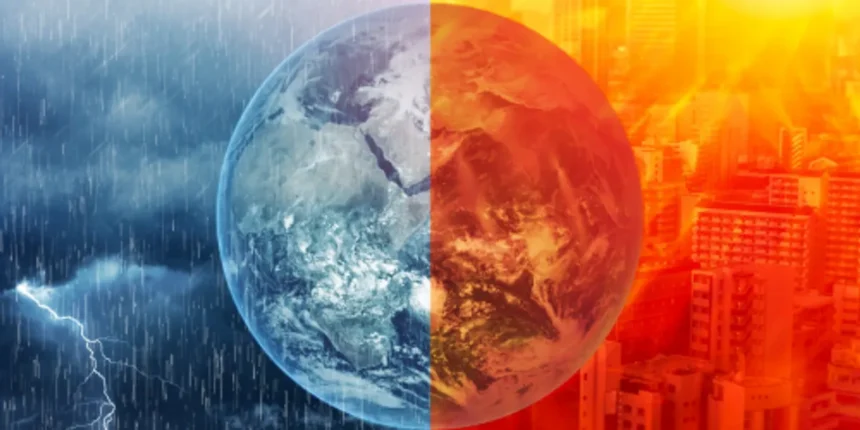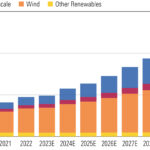Introduction: A Turning Point for Humanity
In 2025, climate change is no longer a distant threat—it’s a daily reality. From melting glaciers to raging wildfires, rising sea levels to extreme droughts, the impacts are being felt across every continent. Climate change is not just reshaping the environment; it’s fundamentally altering economies, global policies, human health, and migration patterns. As we cross critical climate thresholds, the world stands at a crossroads: adapt or suffer devastating consequences.
The Economic Costs of Climate Change
Natural Disasters and Financial Strain
Natural disasters have become more frequent and more intense, causing billions in damages annually. According to the World Bank, climate-related disasters cost the global economy nearly $400 billion each year.
- Hurricanes destroying infrastructure
- Wildfires consuming residential areas
- Floods wiping out agricultural productivity
Insurance companies are raising premiums, businesses are investing in climate resilience, and governments are allocating unprecedented budgets toward disaster recovery.
Green Economy on the Rise
While some sectors suffer, new industries are booming. Renewable energy, sustainable agriculture, and green construction are experiencing massive investment surges. Nations leading the green economy—like Denmark, Germany, and Costa Rica—are reaping both environmental and financial rewards.
Climate Migration: A Growing Humanitarian Crisis
Mass Displacement and Urban Pressures
By 2025, an estimated 30 million people have become climate refugees, forced to flee their homes due to rising seas, extreme heat, and water shortages. Coastal cities like Jakarta and Miami are losing populations, while inland cities face housing and resource shortages.
Political and Social Tensions
Climate migration is straining international relations:
- Borders tightening
- Xenophobia rising
- Resource wars looming in water-scarce regions
Global cooperation is urgently needed to manage this humanitarian crisis with compassion and foresight.
Health Impacts of a Changing Climate
The Spread of Diseases
Warmer temperatures have expanded the range of vector-borne diseases like malaria, dengue, and Zika virus into regions previously unaffected.
Mental Health Challenges
Climate anxiety—also called eco-anxiety—is emerging as a serious public health issue, particularly among youth who fear for their future.
Food and Water Insecurity
Crop failures and water scarcity are triggering malnutrition crises in vulnerable regions, exacerbating existing health disparities.
How Nations Are Responding
Aggressive Climate Policies
The 2025 Global Climate Summit led to historic agreements:
- Net-zero carbon targets accelerated to 2040 for many nations
- Massive reforestation and carbon capture initiatives launched
- Fossil fuel subsidies slashed worldwide
Countries that once resisted action are now racing to mitigate impacts.
Technology and Innovation to the Rescue
- Carbon capture technologies are scaling up
- Geoengineering solutions like solar radiation management are being tested
- Electric vehicles are now mainstream, even in emerging markets
Technology offers hope—but only if deployed responsibly.
Climate Justice: A Moral Imperative
Rich Nations Under Pressure
Developed countries, responsible for the majority of historic emissions, are facing increasing demands to fund climate adaptation efforts in the Global South.
Indigenous Wisdom Gains Recognition
Indigenous communities, long stewards of ecological balance, are finally being recognized as vital partners in conservation and climate resilience efforts.
Conclusion: A Defining Decade
The world in 2025 is being reshaped by climate change in ways previously unimaginable. Economies are transforming, societies are being tested, and nature is fighting back. Whether humanity rises to the challenge will define not just this decade but the fate of generations to come. Adaptation, innovation, and global solidarity are no longer optional—they are essential.
The time for incremental steps is over. The time for bold, collective action is now.















